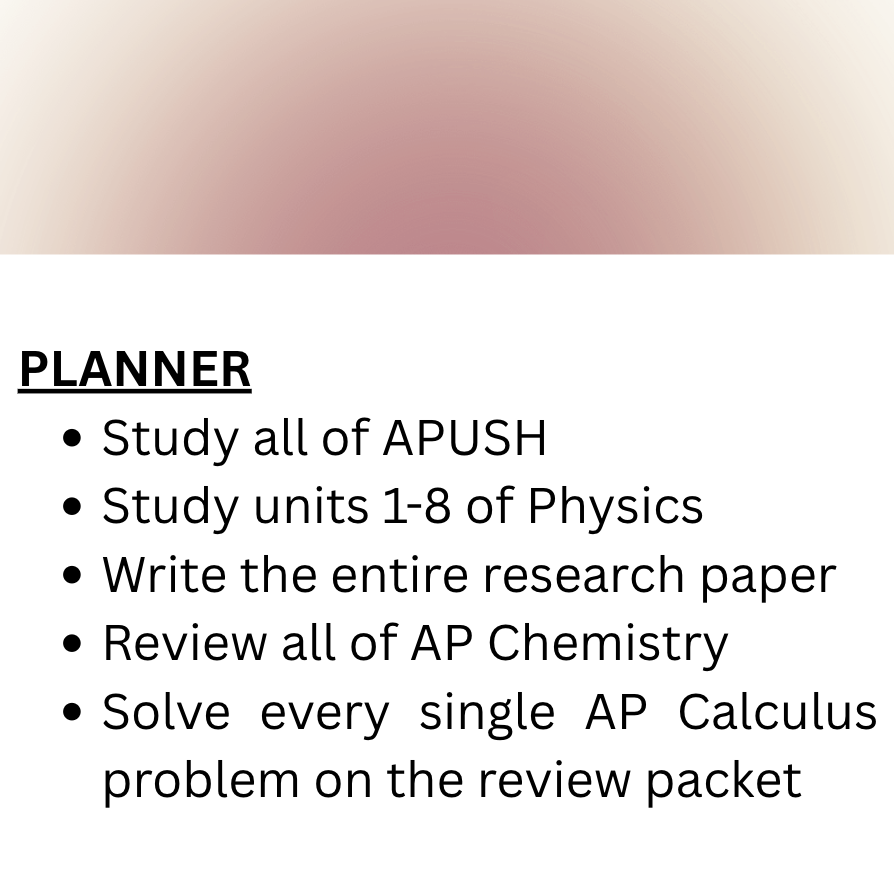As finals and AP tests approach around the corner, students often resort to cramming, last minute studying aimed at taking in large amounts of material within a short period of time. While this approach can create a sense of security, numerous studies show that cramming is less efficient than carefully crafted, long term studying.
Cram studying may seem like a good alternative now, but on a real note, building out a schedule across several months is more effective for both your mind and sanity. In my experience, cramming always left me mentally exhausted and with little memory the next day, even though it felt productive at the time. I had less anxiety and more control when I studied ahead of time.

Cram studying involves learning large quantities of material in a single sitting. It might lead to short term gains but doesn’t help in retention over the long run. For example, it has been discovered that cramming students can perform satisfactorily in tests that are within a shorter period of time but are unsuccessful in retaining that material weeks later.
Furthermore, cramming leads to increased stress and decreased sleep, both of which negatively impact cognitive function. A study in Child Development found that students who lost sleep in order to study had greater difficulty learning the following day, including issues with absorbing new information and worse test scores.
Contrary to cramming, spreading out practice and study sessions over time is a better option. Spaced practice utilizes the psychological spacing effect, which enhances memorization by allowing intervals between study sessions. Spaced practice has been shown to be up to twice as effective as massed practice for storing information in long term memory.
The benefits of spaced practice are not just in theory. Educational institutions like the University of California, San Diego, advocate for spaced learning, emphasize that it allows students to process and process information more effectively, leading to better performance on exams.
Additionally, using apps like digital calendars, reminders, and study apps can help students organize their time efficiently. Group study sessions, when used strategically, can also reinforce spaced learning by allowing students to teach and quiz each other. Teachers and schools should emphasize this shift as well, by encouraging continuous review and assigning assessments throughout the semester rather than relying on end of unit tests. Cramming rewards effort but not strategy, so students should be taught how to study smarter, not harder. There would likely be fewer problems during exam week and higher test scores if more people were aware of the importance of spaced practicing.
While cramming might offer a temporary fix, it falls short in promoting good understanding and academic success. Embracing spaced practice not only enhances long term retention but also reduces stress and improves overall performance. As students prepare for AP exams and finals, using structured, study strategies will create more rewarding outcomes.








